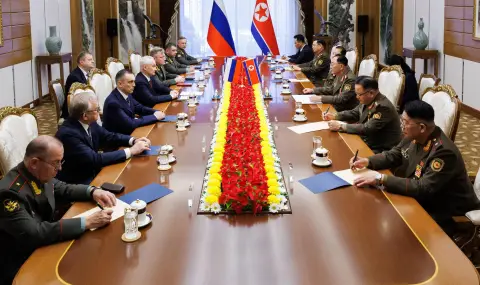At the beginning of the war, the Russian Federation transferred about 2,000 tracked howitzers to Ukraine, and during the 34 months of hostilities, its army lost at least 800 of them, cited by Focus.
According to the American magazine Forbes, the production of new howitzers is significantly lagging behind demand. The once huge stock of old howitzers from the Soviet era has been reduced by perhaps half. Amid a shortage of mobile artillery in the Russian Federation, North Korea has handed over its howitzers to the Russian army for the second time in six weeks. They were spotted being transported by train.
The publication notes that this does not so much demonstrate the close relations between the countries, but rather shows Russia's dependence on North Korean weapons. The M1989 howitzers fire 170mm shells, an unusual caliber.
Estonian analyst Artur Rehi explains that most Russian guns fire 122mm or 152mm shells. North Korea has likely sent millions of these shells to Russia, so that its military can potentially fire over 10,000 rounds per day.
Until this winter, North Korea had been supplying artillery ammunition in calibers that Russia could produce itself. The argument is that the Russians’ problem is not one of capability, but of production capacity. That is, if Pyongyang turns its back on Moscow, the Russians will not lose the artillery, they will simply use it less frequently.
Now, with the arrival of the M1989, the situation is changing. This self-propelled gun is the only 170-millimeter howitzer in the world. Therefore, it is quite possible that all the factories that produce shells for it are located in North Korea. This further deepens the dependence of the Russian Federation.
More than a year ago, the Ukrainian analytical group Frontelligence Insight reported on the first million North Korean shells arriving in Russia. Then the question arose of what exactly North Korea received in response.
According to US Navy Admiral Samuel Paparo, head of the US Indo-Pacific Command, Moscow is likely to transfer missile and submarine technology to Pyongyang. This could accelerate the North Korean Navy's long-term efforts to develop and introduce silent submarines armed with nuclear weapons - intercontinental ballistic missiles.
"This is a one-sided trade that greatly benefits the North Koreans. The Russians get artillery. The North Koreans could get submarine-launched nuclear weapons. But what choice does Russia have as its depleted artillery corps gradually becomes more North Korean? If Pyongyang doesn't get what it wants, it could actually shut down a growing share of Moscow's biggest weapons, the publication concludes.
